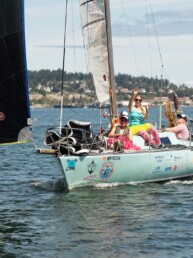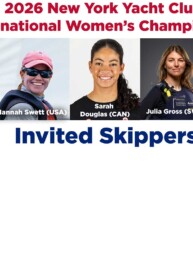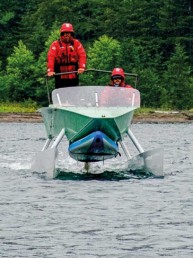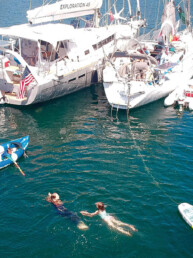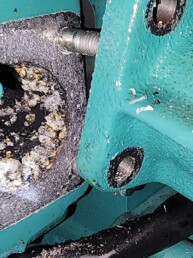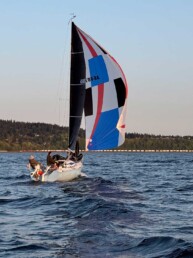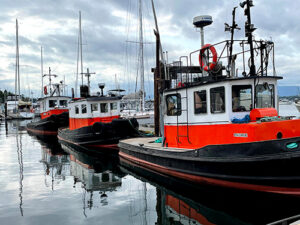
The first hint about the place we would be arriving at was the marina. As we headed toward Cowichan Bay, a village on the east coast of southern Vancouver Island, I’d called to ask about transient moorage at the Cowichan Bay Fisherman’s Wharf Association. A gruff, no-nonsense man answered the phone and said if we got there after the office was closed, we could tie up at the temporary loading zone on the main float and he’d find us a slip in the morning.
We arrived after office hours and pulled into the loading zone as directed. There was adequate space, around 70 feet or so, but since we planned to move first thing in the morning, we didn’t horse the boat forward to make more space on the dock, instead leaving it parked in the middle. It was a bad decision.
Around 5:30 a.m. the next morning, we awoke to the deep growl of a diesel engine outside our Passport 40, Rounder. Marty poked his head out the hatch above our bunk to see a mid-sized tugboat squeezed between our dinghy and the end of the dock, stern-to. The captain hadn’t tied up but was holding the boat in place with its engines while a deckhand ran ashore and unloaded some gear. After about 10 minutes, the tugboat left and we went back to bed.
As soon as the marina office opened, Marty went up to ask about our slip and got an earful from the harbormaster’s buddy, who was hanging out in the office and wanted to know why we felt the need to take up the entire dock instead of leaving room for working boats. He was right, of course. Chastened, Marty slunk back to our boat and we moved to a slip on another dock, nestled between tugboats and fishing vessels. There were no other boaters in sight, and the marina looked to have at least as many working boats as recreational ones.
We had, however clumsily, discovered the authentic appeal of Cowichan Bay, a place that feels like a throwback to the working waterfront towns once common around the Salish Sea. It made us think of some of the towns we stopped in during a cruise to Southeast Alaska three years earlier — places like Wrangell and Craig, where there were few tourists and most of the boats surrounding our sailboat were used for making a living.
We’d heard about Cowichan Bay but had somehow never visited, passing it by on previous trips to Vancouver Island and the Gulf Islands. We decided to stop on this trip, our first to Canada since before the pandemic, after being on the hook for most of a week. A frontal system was approaching, with heavy winds predicted, and it seemed like a good time to tuck in for a few nights, reprovision and explore.
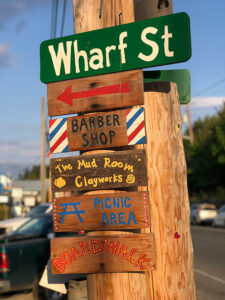 After tying up at the marina, we walked down the long pier leading to the village’s waterfront strip, a mix of small shops and restaurants, docks and floating homes that are a more funky, bohemian version of the postcard-perfect Sleepless in Seattle type. Unpretentious and ungentrified, the village has a pleasantly laidback feel reflected in its 2009 designation as North America’s first Cittaslow community, a global movement launched in Italy and inspired by the slow food movement. A cluster of hand-painted wooden signs on the main street pointed visitors toward a boardwalk, pottery studio and an old-school barber shop, outside of which sat a communal piano painted with orcas. Nearby, a tiny park overlooking the water was bordered with weathered rowboats repurposed as planters.
After tying up at the marina, we walked down the long pier leading to the village’s waterfront strip, a mix of small shops and restaurants, docks and floating homes that are a more funky, bohemian version of the postcard-perfect Sleepless in Seattle type. Unpretentious and ungentrified, the village has a pleasantly laidback feel reflected in its 2009 designation as North America’s first Cittaslow community, a global movement launched in Italy and inspired by the slow food movement. A cluster of hand-painted wooden signs on the main street pointed visitors toward a boardwalk, pottery studio and an old-school barber shop, outside of which sat a communal piano painted with orcas. Nearby, a tiny park overlooking the water was bordered with weathered rowboats repurposed as planters.
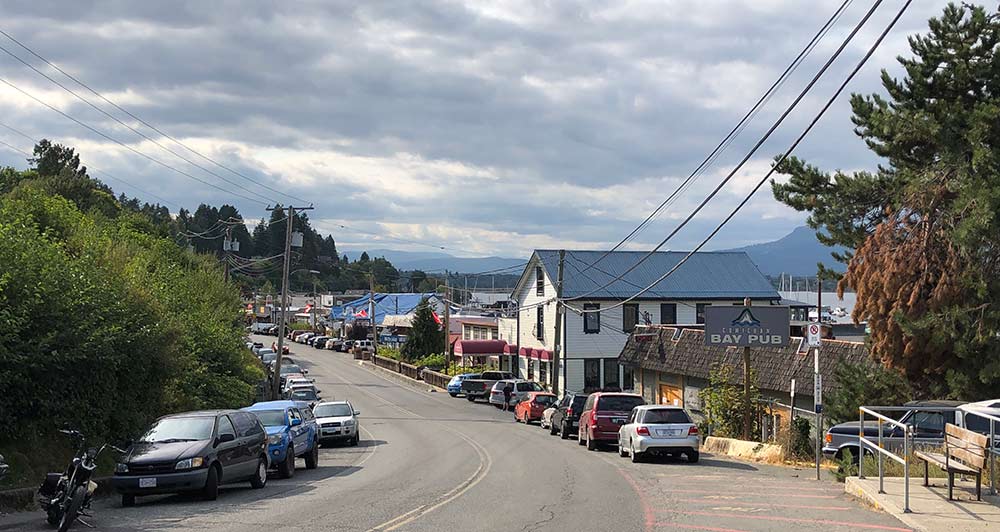
We spent a few hours walking around the village, strolling the docks and looking at the interesting range of boats. It wasn’t just one fiberglass yacht after another, but a real mix of old and new, working boats and pleasure craft.
The Cowichan Bay Maritime Centre, which sadly wasn’t open when we stopped by, has a museum with boat models and various types of small boats on display. The center is run by the nonprofit Cowichan Wooden Boat Society, which also operates a traditional marine ways — a pair of tracks that run from below the water’s edge onto the shore — for hauling out and cleaning boats. A little west of the maritime center is the Cowichan Bay Estuary and waterfront Hecate Park, which has picnic tables and a kayak launch.
Later that afternoon, we headed to the popular True Grain bakery to meet up with a cousin of mine who lives in nearby Duncan. COVID-19 had kept our family from visiting for more than a year, and I was excited to see my cousin and wife and meet their 14-month-old son for the first time. The bakery, which uses only organic flour and mills its own grains, churns out an impressive selection of breads and goodies and is worth a visit. We sat out on the deck, catching up over delicious pastries and cookies and delighting in the little guy’s antics.
We were looking forward to a meal out that night, and the village’s half-dozen or so restaurants range from Thai to fine dining. We settled on the Cowichan Bay Pub, a low-key place with a deck offering sweeping views of the bay and nearby Mount Tzouhalem.
The village’s combined liquor store and market has a decent selection of basic grocery items, but we were in need of produce and other supplies, so we hiked over to Great Greens Farm Market, a PCC-type store about 1.5 miles away, following a pleasant route that wound uphill through a residential area, then along a quiet road flanked by farmland.
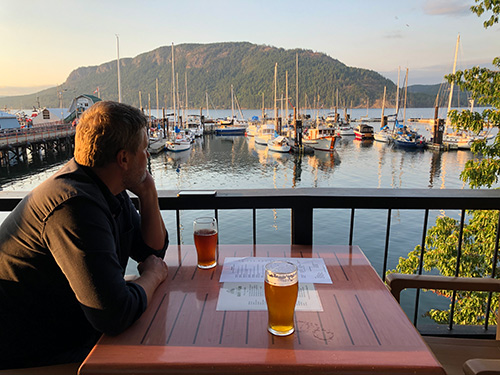
After three nights in Cowichan Bay, it was time to move on, though I could have lingered another day or two. Marty and I joke that any town on the water, even one you wouldn’t necessarily bother driving to for a weekend, becomes a charming seaside village when arriving by boat.
But Cowichan Bay — with its laidback vibe and colorful, working waterfront — really is that place. It’s a true Pacific Northwest gem.
Deborah Bach is the co-founder of Three Sheets Northwest and a former newspaper reporter. She and her husband can often be found sailing with their boat kitty on their Passport 40, Rounder.

